Ghazal Fazelnia
Generalized User Representations for Transfer Learning
Mar 01, 2024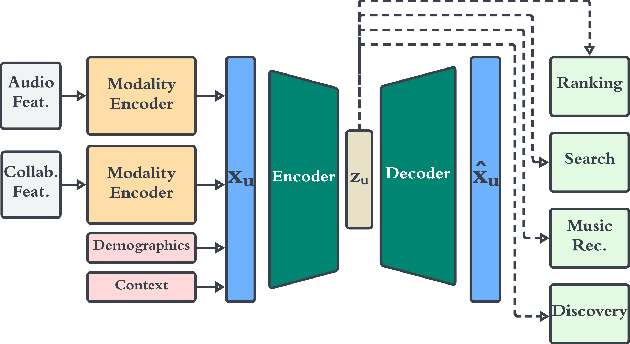

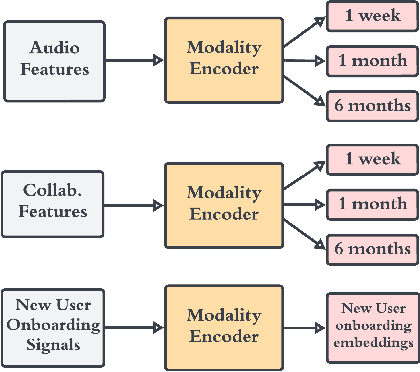

Abstract:We present a novel framework for user representation in large-scale recommender systems, aiming at effectively representing diverse user taste in a generalized manner. Our approach employs a two-stage methodology combining representation learning and transfer learning. The representation learning model uses an autoencoder that compresses various user features into a representation space. In the second stage, downstream task-specific models leverage user representations via transfer learning instead of curating user features individually. We further augment this methodology on the representation's input features to increase flexibility and enable reaction to user events, including new user experiences, in Near-Real Time. Additionally, we propose a novel solution to manage deployment of this framework in production models, allowing downstream models to work independently. We validate the performance of our framework through rigorous offline and online experiments within a large-scale system, showcasing its remarkable efficacy across multiple evaluation tasks. Finally, we show how the proposed framework can significantly reduce infrastructure costs compared to alternative approaches.
Model Selection for Production System via Automated Online Experiments
May 27, 2021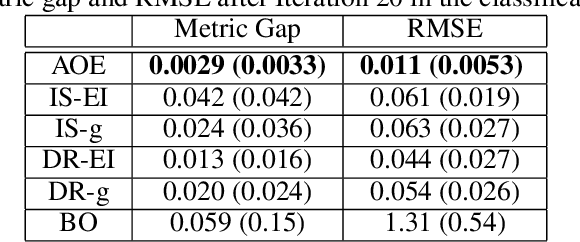
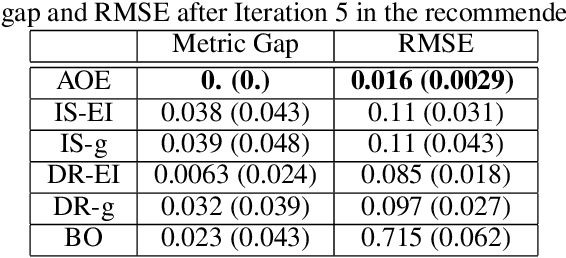
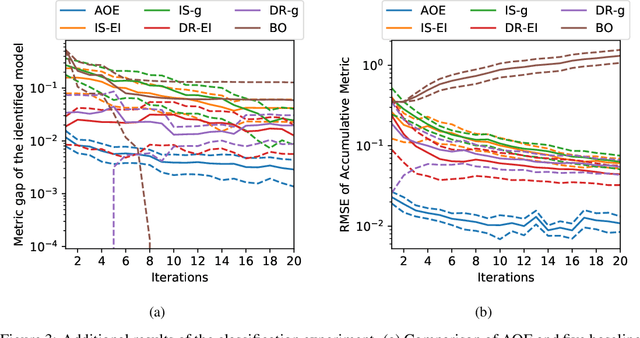
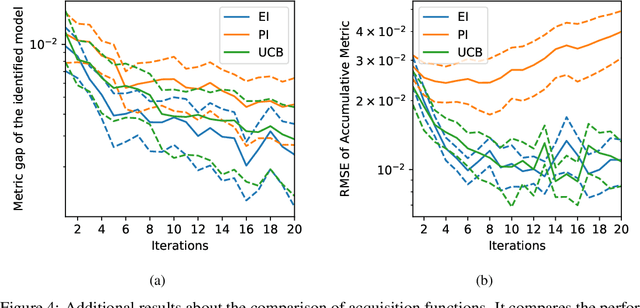
Abstract:A challenge that machine learning practitioners in the industry face is the task of selecting the best model to deploy in production. As a model is often an intermediate component of a production system, online controlled experiments such as A/B tests yield the most reliable estimation of the effectiveness of the whole system, but can only compare two or a few models due to budget constraints. We propose an automated online experimentation mechanism that can efficiently perform model selection from a large pool of models with a small number of online experiments. We derive the probability distribution of the metric of interest that contains the model uncertainty from our Bayesian surrogate model trained using historical logs. Our method efficiently identifies the best model by sequentially selecting and deploying a list of models from the candidate set that balance exploration-exploitation. Using simulations based on real data, we demonstrate the effectiveness of our method on two different tasks.
Trajectory Based Podcast Recommendation
Sep 08, 2020


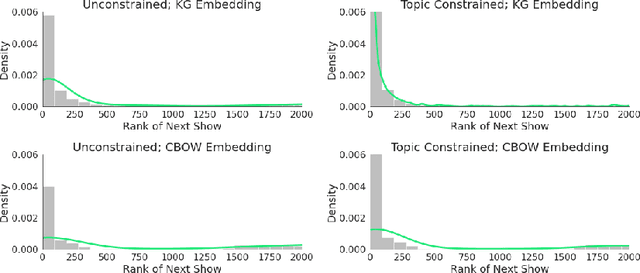
Abstract:Podcast recommendation is a growing area of research that presents new challenges and opportunities. Individuals interact with podcasts in a way that is distinct from most other media; and primary to our concerns is distinct from music consumption. We show that successful and consistent recommendations can be made by viewing users as moving through the podcast library sequentially. Recommendations for future podcasts are then made using the trajectory taken from their sequential behavior. Our experiments provide evidence that user behavior is confined to local trends, and that listening patterns tend to be found over short sequences of similar types of shows. Ultimately, our approach gives a450%increase in effectiveness over a collaborative filtering baseline.
Mixed Membership Recurrent Neural Networks
Dec 23, 2018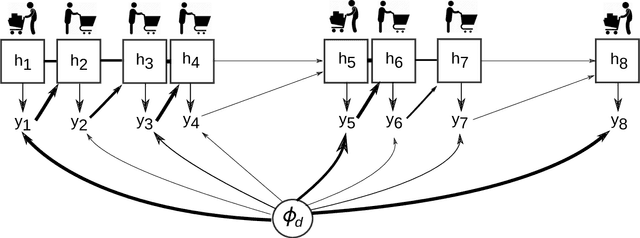
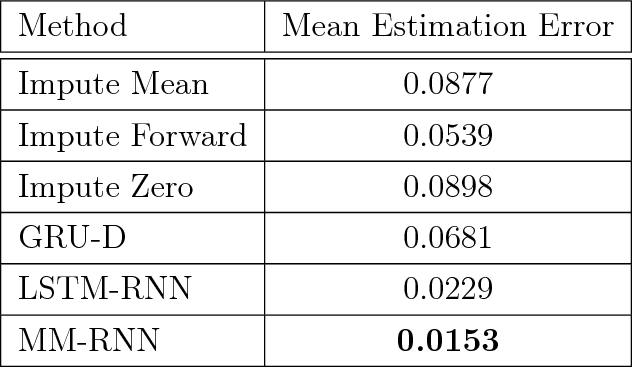
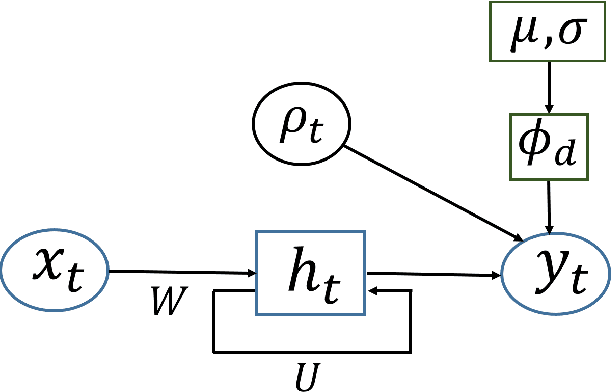
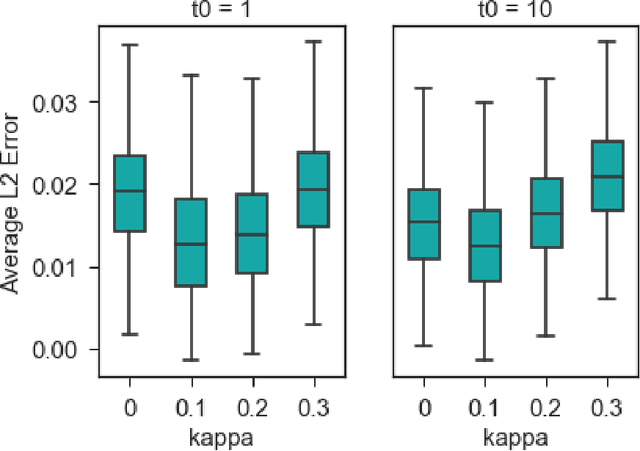
Abstract:Models for sequential data such as the recurrent neural network (RNN) often implicitly model a sequence as having a fixed time interval between observations and do not account for group-level effects when multiple sequences are observed. We propose a model for grouped sequential data based on the RNN that accounts for varying time intervals between observations in a sequence by learning a group-level base parameter to which each sequence can revert. Our approach is motivated by the mixed membership framework, and we show how it can be used for dynamic topic modeling in which the distribution on topics (not the topics themselves) are evolving in time. We demonstrate our approach on a dataset of 3.4 million online grocery shopping orders made by 206K customers.
 Add to Chrome
Add to Chrome Add to Firefox
Add to Firefox Add to Edge
Add to Edge